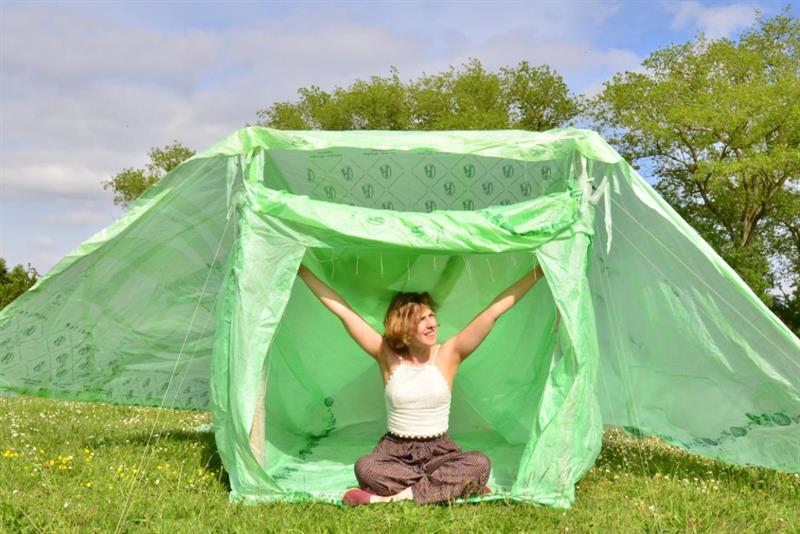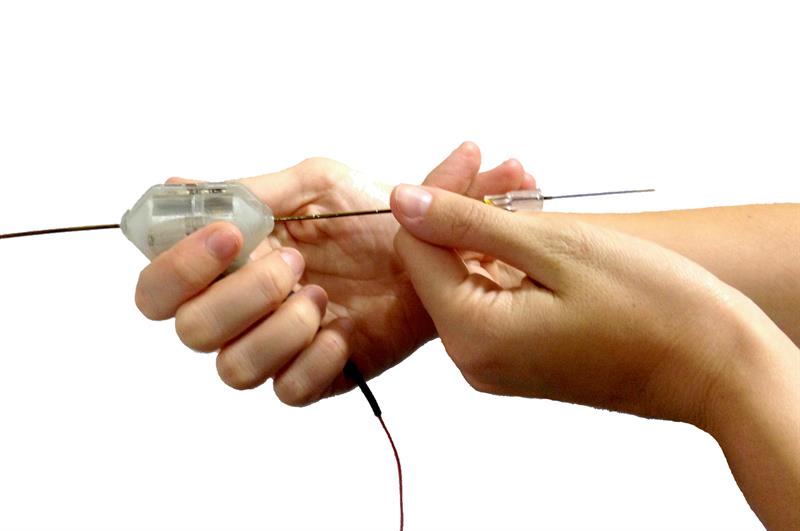19-year-old George Edwards (pictured) has developed a magnetic strip that can be attached to any gas bottle and can send data about gas consumption in real-time to a smartphone app. Edwards has already received an order for 450,000 units from a major supermarket and has received backing from Richard Branson.

23-year-old Amanda Campbell has designed Comp-A-Tent, a biodegradable tent to combat the waste caused by the 100,000 abandoned tents that end up in UK landfill sites after the summer festival season.

Sorin Poppa, 25, has developed a ‘stent graft’, a small covered tube that connects vessels in the arm negating the need for invasive surgery for kidney dialysis.

James Roberts, 23, has designed a portable, inflatable incubator to combat premature deaths in newborns in developing countries. The device can run for 24 hours via a car battery and costs a thirtieth of the price of traditional incubators. The design has already won a 2014 James Dyson Award.
The finalists have now joined the Academy’s Enterprise Hub and will receive mentoring from major business figures and a lead angel investor.
"This year's finalists are testament to the fantastic ideas that the younger generation is capable of generating. Our panel has seen ground-breaking ideas from 16 to 25-year-olds with the potential to save lives, transform the leisure and tourism industry, aid the developing world and lower our carbon footprint," said Ian Shott, fellow of the Royal Academy of Engineering.
The winner of the competition will be awarded a £15,000 prize, and the JC Gammon Award, including a year’s membership to the Enterprise Hub.











